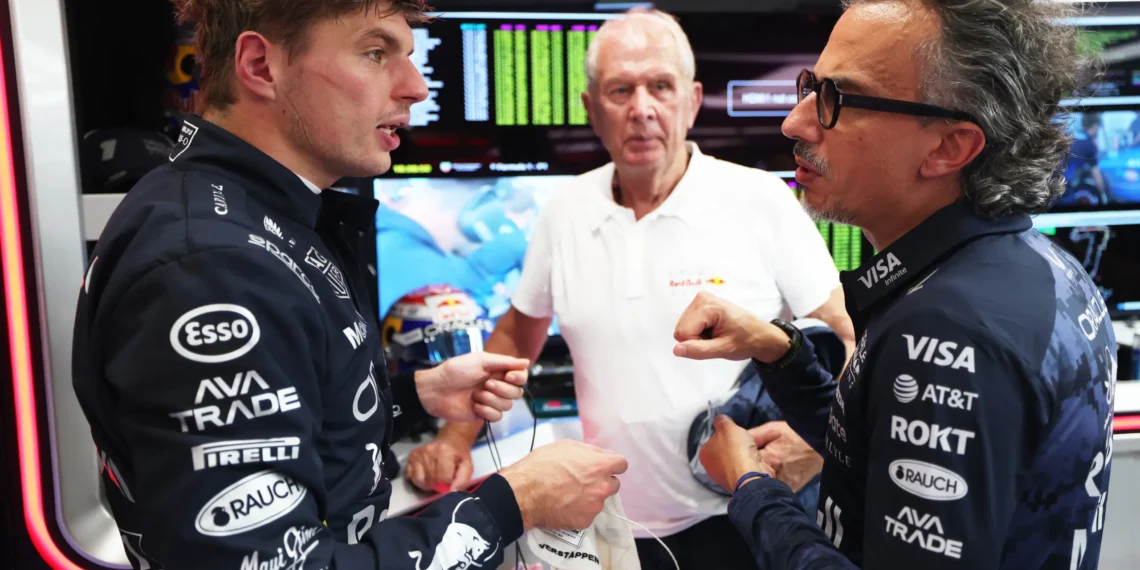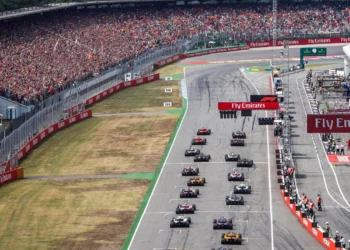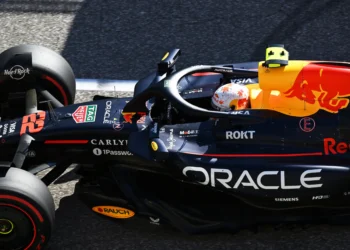Max Verstappen Slams F1’s Cooling Vest Mandate: ‘It’s Ridiculous!’
In a stunning display of defiance, Max Verstappen has taken a bold stance against Formula 1’s impending safety measures, calling the decision to make cooling vests mandatory “a bit ridiculous.” This fiery criticism comes on the heels of F1 issuing its very first heat warning for the Singapore Grand Prix, which is taking place this weekend under sweltering conditions.
The reigning four-time F1 champion put the cooling vest to the test during practice at the notoriously humid Marina Bay Street Circuit. However, despite the oppressive heat—where temperatures soared past the 31 degrees Celsius threshold—Verstappen has chosen to ditch the vest for the remainder of the weekend. His decision raises eyebrows as drivers face a controversial 0.5kg ballast penalty for opting out. But that’s not all; by 2025, the FIA has declared that wearing the vest will be compulsory whenever heat warnings are issued, leaving drivers with no choice in the matter.
Verstappen’s disdain for the cooling vest was palpable. In an exclusive interview, he shared his frustrations, stating, “It doesn’t bother me that much, and it gets hot anyway. A little sweat is okay, and that cooling vest gets hot after 15 to 20 minutes, so there’s no use for it.” His words echo a sentiment of disbelief that drivers are being forced to wear something he believes is ineffective.
As the debate intensifies, Verstappen voiced his strong opposition to the FIA’s decision, insisting, “I totally disagree with that. A bit ridiculous. We have to talk about that.” He emphasized the importance of personal choice when it comes to safety, adding, “In the end, it’s just about your own safety, however you feel about it. They shouldn’t force that on you, I don’t think.”
The push for mandatory cooling vests arises amidst growing concerns regarding driver welfare in increasingly extreme racing environments. As temperatures rise and conditions become more challenging, the FIA aims to protect its athletes, but at what cost? Verstappen’s pointed remarks challenge the effectiveness of such measures and spark a crucial dialogue about the balance between safety and personal autonomy in one of the world’s most exhilarating sports.
As the Singapore GP unfolds, all eyes will be on Verstappen and his fellow drivers—will they embrace these new safety measures, or will they continue to push back against what they see as an overreach by the sport’s governing body? The tension is palpable, and the stakes have never been higher!









